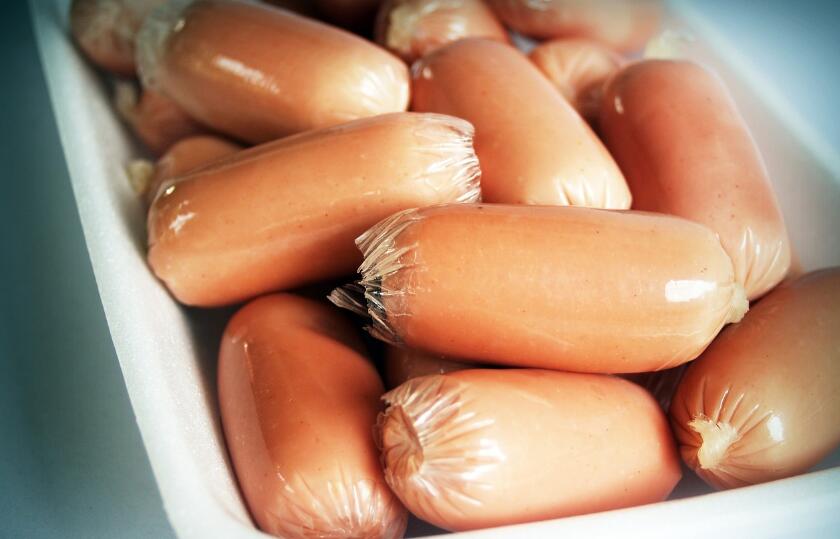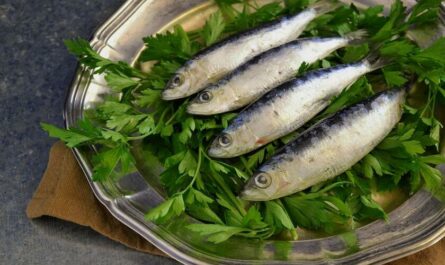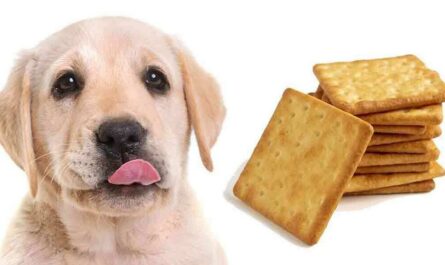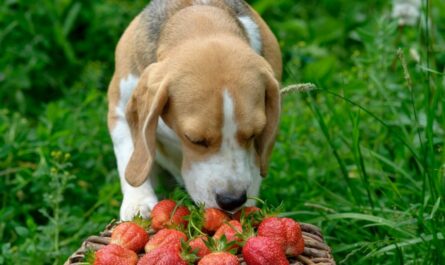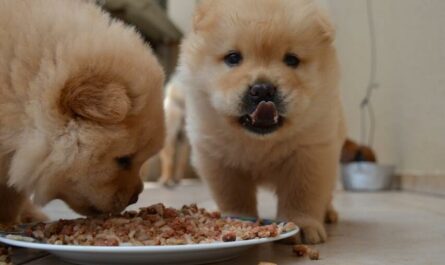Vienna sausages are a popular snack for humans – they’re tasty, convenient, and found in most grocery stores. If you’re a dog owner, you may have wondered whether these little sausages are safe for your pup to eat as well.
Table of Contents
ToggleThe short answer is no, dogs should not eat Vienna sausages. While they may seem like a good source of protein, these processed, canned sausages can actually pose a variety of health risks for dogs.
In this article, we’ll take a closer look at what exactly Vienna sausages are, and why they are unhealthy for dogs. We’ll also provide some much healthier dog treat alternatives to consider instead.
What Are Vienna Sausages?
Vienna sausages were originally created in Vienna, Austria in the late 19th century. They were designed to be a highly portable and quick snack food.
Unlike cured sausages that require hanging and fermenting, Vienna sausages are made from a fresh, emulsified meat mixture that is smoked, cooked, and canned. This gives them their trademark soft, smooth texture and convenience as a ready-to-eat food.
The meat used is typically a blend of pork and beef, sometimes with chicken or turkey added. Vienna sausages are seasoned with spices like garlic, pepper, onion, and paprika to give them their signature kick of flavor.
They can be purchased canned and pre-cooked, or fresh-cooked in deli counters. Canned Vienna sausages are by far the most common variety found in supermarkets and convenience stores.
Types of Vienna Sausages
There are a few different varieties of Vienna sausage to be aware of:
Canned vs. Fresh – As mentioned, canned Vienna sausages are the most widely available, especially in North America. Fresh sausages more closely resemble traditional Vienna sausages found in Austria, with a firmer texture.
Ingredients – While pork and beef are typical, some brands use poultry like chicken or turkey as the meat source. Spices and flavorings also vary between brands.
Mini or Regular Size – The small “cocktail-sized” Vienna sausages are about 2 inches long. Regular sized are typically 4-5 inches.
Smoked or Un smoked – Most canned Vienna sausages are smoked during production. Some brands offer an unsmoked version.
So in summary, the small, canned, smoked Vienna sausages packed in condiments are the most common. But there can be some variety between brands when it comes to size, meat source, spices and smoke flavoring.
Are Vienna Sausages Safe for Dogs to Eat?
While Vienna sausages may seem like an easy protein source to share with your dog, there are several reasons why they are not a healthy canine snack.
High Sodium Content
One of the biggest concerns with Vienna sausages is their high sodium content. The canning process itself adds a lot of sodium to preserve the sausages. Additionally, smoked and cured meats like Vienna sausages contain much higher levels of sodium than fresh meats.
Too much sodium can cause a range of health issues for dogs, including:
- Dehydration and increased thirst
- Elevated blood pressure
- Kidney problems
- Neurological issues like seizures
Dogs with heart disease, kidney disease, or other health conditions may be at an even greater risk of complications from excessive sodium consumption.
To give an idea of just how much sodium Vienna sausages contain, here is a nutritional comparison:
- Vienna sausages – 600mg of sodium per 100g
- Pork hot dog – 534mg per 100g
- Raw pork – 60mg per 100g
So Vienna sausages contain about 10 times more sodium than fresh pork. Eating just a few could quickly exceed the recommended daily sodium limits for dogs.
High Fat Content
In addition to being high in sodium, Vienna sausages are also high in fat. A typical Vienna sausage contains around 10 grams of fat per sausage.
While dogs do need healthy fats in their diet, too much can lead to obesity, pancreatitis, fatty liver disease, and other conditions.
Some negative effects of excessive fat consumption in dogs include:
- Obesity and weight gain
- Pancreatitis
- Diarrhea and vomiting
- Liver and kidney disease
- Lethargy and decreased activity
- Skin problems like itchiness and scaly skin
The high fat content coupled with the high salt content make Vienna sausages a one-two punch of unhealthy ingredients for dogs.
Preservatives
Being canned and processed meat products, Vienna sausages contain preservatives like nitrites and nitrates. Studies have linked these preservatives to an increased risk of cancer and heart disease in both humans and animals.
Common preservatives found in Vienna sausages include:
- Sodium nitrate
- Sodium erythorbate
- Sodium nitrite
- Potassium chloride
- Citric acid
While one small serving may not cause immediate issues, the accumulation of these preservatives over time could potentially be dangerous. It’s best to avoid regularly feeding foods with added preservatives.
Spices and Flavorings
Vienna sausages are often flavored with spices like garlic, onion, paprika, and pepper. Some of these flavor-boosting ingredients can cause gastrointestinal upset and other negative reactions in dogs.
Onions, garlic, chives, and leeks are all toxic to dogs and part of the same plant family. They can cause oxidative damage to red blood cells leading to anemia when eaten in large amounts.
But even in smaller quantities, these spices may cause:
- Vomiting
- Diarrhea
- Abdominal pain
- Weakness
- Increased heart rate
- Drooling
- Panting
- Lethargy
So in summary, the high sodium content, fat content, preservatives, and spices make Vienna sausages a less than ideal choice for your dog. But what if your pup manages to grab one anyway?
Next we’ll cover what to watch for if your dog accidentally eats a Vienna sausage.
Signs of a Negative Reaction
Hopefully you can prevent your dog from eating Vienna sausages. But if your sneaky canine manages to snag one anyway, here are some negative symptoms to watch out for:
- Vomiting or diarrhea – This may occur within a few hours of ingestion as the spices, fat, and preservatives upset your dog’s stomach.
- Increased thirst and urination – Due to the high sodium content. If your dog seems excessively thirsty after eating a Vienna sausage, contact your vet.
- Lethargy or lack of appetite – Refusing food or water and excessive tiredness may indicate something is wrong.
- Facial swelling – Swelling around the lips, eyes, or throat could signal a food allergy reaction. Hives or itchy skin may also occur.
- Difficulty breathing – Severe facial swelling, coughing, or wheezing can indicate an obstructed airway that requires emergency veterinary treatment.
If symptoms last more than 24 hours or your dog exhibits facial swelling, lethargy, or trouble breathing, seek veterinary assistance immediately. Blood in vomit or stools also warrants an urgent vet visit.
For mild cases, try withholding food for several hours to give your dog’s stomach a chance to settle. Make sure fresh water is always available. Call your vet if symptoms concern you or don’t improve within a day. They may advise bringing your dog in for monitoring or medications to control vomiting.
Now that you know what warning signs to look for, let’s discuss some healthier and safer snack alternatives for your dog.

Healthier Treat Alternatives for Dogs
While Vienna sausages should be avoided, there are many other tasty snacks that are safe and nutritious for dogs. Here are some healthier options to consider:
Lean Meats
Lean cuts of cooked chicken, beef, pork, or turkey make an excellent treat. Look for low-fat options with no salt or seasonings added. The protein will help support your dog’s muscles while the low fat content prevents pancreatitis risk.
Some examples include:
- Skinless, boneless chicken or turkey breast
- Lean ground beef or pork
- Beef, pork, or chicken liver (in moderation)
- Plain boiled shrimp or whitefish
Be sure to cook meats fully but avoid charring or burning. Raw meats carry a risk of salmonella or other bacteria that cooking helps destroy.
Fruits and Veggies
Fresh produce like carrots, green beans, apples, or bananas can be a crunchy, refreshing snack. Be sure to cut them to an appropriate size so they aren’t a choking hazard. Check which fruits and veggies are safe for dogs first.
Some dog-safe options include:
- Carrots
- Green beans
- Cucumber slices
- Watermelon
- Blueberries
- Pumpkin
- Apples
- Bananas
- Sweet potatoes
Avoid grapes, raisins, onions, avocado, and other potentially toxic produce.
Peanut Butter
A spoonful of all-natural peanut butter makes a nice occasional treat. Choose brands without added sugar or artificial sweeteners like xylitol, which is toxic for dogs. Supervise eating as peanut butter can get sticky.
Make sure to purchase peanut butter made for human consumption, not raw pet peanut butter which may contain harmful bacteria.
Some things to look for in choosing a dog-safe peanut butter include:
- Only 1 or 2 ingredients – peanuts and possibly salt
- No xylitol in the ingredients list
- No added sugars or sweeteners
- All natural – avoid big name brands with hydrogenated oils and excess fillers
Dog Treats
High quality commercial dog treats are designed to be digestible and healthy for canines. Look for options made from wholesome ingredients with minimal salt and fat content. Consulting your vet for brand recommendations is advised.
Some traits to look for in healthy dog treats:
- Single source protein as the first ingredient – like chicken, beef etc
- Whole grains like oats, barley or brown rice
- Natural preservatives like vitamin E instead of chemicals
- Avoid artificial colors, flavors and sweeteners
- Made in the USA for quality standards
Review treat labels carefully and start slowly with new treats to watch for signs of an allergic reaction.
Food Puzzles
Use your dog’s regular kibble or combinations of dog-safe fruits/veggies in a puzzle toy. This gives mental stimulation along with a reward they have to work for. Popular options include:
- Kongs – fill with kibble and peanut butter then freeze
- Puzzle balls – kibble dispenses as the ball is rolled
- Snuffle mats – hide kibble in the fabric strips
- Lick mats – spread dog-safe purees for licking up
The key is to read labels carefully and aim for natural foods without excess fat, spices, onions, garlic, or other red flag ingredients. Moderation is also key – even healthy treats should be fed in limited portions. Check with your vet if you have any concerns about treat suitability.
Now that we’ve covered safer snack options, what about the occasional Vienna sausage?
Can Dogs Have Vienna Sausage Occasionally?
While it’s best to avoid Vienna sausages altogether, the reality is that accidents happen. Your dog may grab one off the counter when you’re not looking for example.
In these rare instances, the tiny amount of sausage likely won’t cause major issues provided these precautions are followed:
- Give only a small piece – a few nibbles maximum.
- Make sure the sausage has NO seasonings or spices. Some brands offer plain Vienna sausage with no garlic, onion etc.
- Do not make a habit of giving Vienna sausage. Only the rarest of occasions.
- Monitor your dog closely afterwards for any unusual symptoms or reactions.
- Never give to dogs with sodium-restricted diets or existing kidney/heart problems.
When in doubt, call your veterinarian for their advice. It’s generally best not to offer any at all. But tiny portions once in a blue moon likely won’t hurt a healthy dog. Emphasis on tiny portions – a whole sausage can spell trouble.
Conclusion
While the answer to “can dogs eat Vienna sausages” is a resounding no, we hope this article gave you a better understanding of why they are unhealthy for dogs.
In addition. with some care reading labels and choosing snacks, you can keep your canine companion happy and healthy while avoiding processed foods like Vienna sausages. Check with your veterinarian if you have additional diet or nutrition questions.

